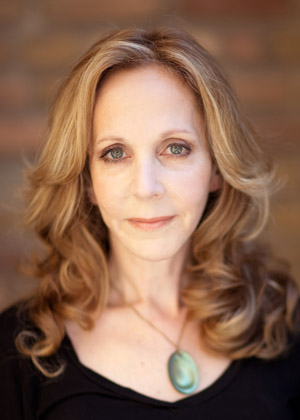Recent comments from science communicator and Cosmos host Neil deGrasse Tyson dismissing philosophy as “useless” have stirred an ongoing controversy among atheists, agnostics, and others.
He’s not the first in the nontheist community to raise the issue—Lawrence Krauss, for example, has been criticized for making dismissive statements about philosophy. More recently, Massimo Pigliucci published a paper critiquing some atheist views on philosophy, eliciting responses from Jerry Coyne and PZ Myers.
As nontheists continue to debate the merits of philosophy, why should atheists take it seriously? I asked Rebecca Goldstein, author of the acclaimed new book Plato at the Googleplex: Why Philosophy Won’t Go Away. A MacArthur “Genius” Fellow, Goldstein was named Humanist of the Year by the American Humanist Association in 2011 and has written numerous award-winning books, including 36 Arguments for the Existence of God: A Work of Fiction.
Below, we discuss Goldstein’s new book, why philosophy isn’t in competition with science, morality without religion, and why atheists shouldn’t dismiss philosophy.
Chris Stedman: Your new book, Plato at the Googleplex: Why Philosophy Won’t Go Away, places Plato in our time. Why did you write the book in this way?
Rebecca Goldstein: I wanted, first of all, to write about Plato using the dialogue form—because that’s how he wrote and he had excellent reasons for writing philosophy in this way, trying to embed abstract thinking into the dramas of real life. And I wanted, by bringing Plato forward into our day, to demonstrate not only the persistence of his questions but also how much progress we’ve made with them.
The Plato of my dialogues is constantly being surprised by how much more than he we know—not only scientifically but also philosophically, ethically. And this is not knowledge that’s confined to professional philosophers, but has disseminated outward into generally shared perspectives.
CS: Why is philosophy important? Why should people today be concerned about the work of ancient philosophers?
RG: I wouldn’t recommend that everyone devote themselves to ancient philosophers, unless they’re interested—as I am, at least in my current book—in the genesis of this discipline and in why it was that one people, the ancient Greeks, developed a technique for exploring in a secular and rational fashion many of the same questions that religion considers. So let’s forget about ancient philosophy for the moment and just speak of philosophy.
Philosophy is important because it’s unavoidable if you want to live a coherent life. To live such a life is to use standards to justify your beliefs and actions; it’s to try to bring as much internal consistency into your various beliefs as possible; it’s to consider which of our seemingly intuitive views about the nature of the world and our place within it are compatible with what science has to tell us, which are incompatible, and which are absolutely necessary.
Now whether one likes it or not, such coherence-making thinking involves one in issues of philosophy. Secularists, in particular, who want to counter the false claim that without God to ground morality there can only be nihilism, should be particularly interested in moral philosophy, since that’s where they’ll find the counter-arguments.
CS: You’ve challenged other atheists who dismiss philosophy. Why do you think some dismiss it, and what’s your response to that position?
RG: I think there’s often a misunderstanding about the nature of philosophy. Some seem to think philosophy to be in competition with science in the project of describing reality—in other words, ontology. But that’s not really the proper job of philosophy at all. It can’t, and shouldn’t, compete with science in this domain.
And how does one know this? From good philosophical arguments, that’s how. Science, even in making out its case for ontological superiority, has to rely on philosophy in order to make it coherently. It has to step outside of itself and offer a clear criterion for what makes some description scientific and others not, and offer a defense that its methodology actually gets us closer to knowing reality. It relies on philosophy to render its own claims coherent.
More generally, if you want to know what the role of philosophy is you should think of it more in terms of maximizing our overall coherence—including our internal moral coherence—than in terms of describing reality, as science does.
CS: I was struck by a statement you made at a recent event at the Humanist Community at Harvard: That what philosophy tries to do is make us as coherent as possible, and we can’t live coherently without thinking we matter—thus, if I am committed to my own mattering, I must be committed to other people’s. How does this idea speak to empathy and morality without religion?
RG: [Ludwig] Wittgenstein persuasively argued that there can’t be any private languages. I’d argue that there also can’t be any private mattering. If a person is committed to her own life mattering—and just about everybody is, it’s implicit in our very actions—then, on pains of incoherence, she has to be prepared to extend that mattering to others. This kind of reasoning—and obviously I’ve only given you the bare-bones version of it—provides the rational grounds for morality without religion.
Now I don’t think that this purely abstract grounding of morality is necessarily going to move people all on its own to act morally, which means taking the interests of others into account. For that we also need emotions, including empathy. But, historically, we’ve often needed arguments even to get the empathy flowing in the direction of those who seem so different from us that we don’t naturally think they could possibly matter in the same ways we do.
Arguments clear the blocked moral arteries so that empathy can flow. Paraphrasing Kant, I’d say rational arguments without moral emotions are empty; but moral emotions without rational arguments are blind.






